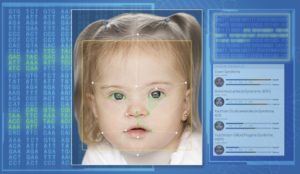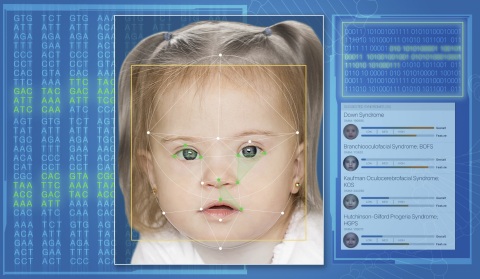Genetic Technologies – A closer look
New genetic technologies are changing how genetic analysis and diagnosis works, and they are bringing more advanced, and accurate solutions to the table. The goal of all of these technologies is to improve patient outcomes, through faster, more accurate diagnosis of rare diseases and genetic syndromes.
Genetic technologies: facial analysis screening for more accurate genetic analysis
A combination of next-generation phenotyping (NGP) combined with real-world data, of genetic features and markers, has led to the development of an online platform for genetic analysis that removes many of the traditional obstacles to diagnosis. This promises to have very significant implications for the entire genetic diagnosis field.

Genetic technologies: empowering genetic experts
The use of next-generation phenotyping of rare disease patients is leading to the discovery of many new clinical signs and symptoms of rare diseases, that are increasing our understanding behind the causes and symptoms of genetic syndromes. The technology is able to provide more accurate genetic analysis for patients, but it is also able to identify new markers for rare diseases that can be used as disease-predicting biomarkers as well. The more we collect this information on how rare diseases present in individuals, the more we can strengthen the data we do have. This in turn makes the technology stronger and more accurate as well.
The technology is making it easier for genetic experts to prescribe and recommend more targeted genetic testing, as a result of more accurate genetic analysis. It increases the information an expert has about a patient, and allows them to focus on specific potential diseases. All of this, in turn, reduces the rate of misdiagnosis- a common issue currently in rare disease diagnosis. A reduced rate of misdiagnosis helps patients, but it also empowers genetic counselors and geneticists, and allows them to improve their understanding of rare diseases, and provide better care for their patients.
Too many genetic syndromes are still referred to as orphan syndromes. This means that there is limited research, understanding, and attention on their causes and symptoms, as well as their prevalence rates. However advancements in genetic screening and analysis technologies are changing all of this, and are hopefully reducing the number of orphan syndromes at the same time.

Genetic technologies: empowering patients
When it comes to advancements in genetic technologies, rare disease patients have the most to gain. For many of them, reaching a confirmed genetic diagnosis is a stressful, long process defined by misdiagnosis and inaccuracies.
This is in part due to the nature of rare diseases themselves, their limited prevalence can make it difficult to gather conclusive information on them, and a lack of interest in, and funding of research into diseases that might only affect a handful of patients globally.
New genetic technologies are removing the barriers facing many undiagnosed rare disease patients, and at the same time are bringing new hope to affected individuals and their families at the same time.
Genetic technologies: removing barriers
Online genetic analysis solutions remove obstacles that have often faced rare disease patients. They make it possible for patients to access advanced, accurate genetic analysis from the comfort of their own home. No waiting times, no long travelling distances. Anyone, anywhere in the world, can initiate their own virtual genetic analysis.
These technologies, as more accurate solutions than traditional genetic analysis methods and reports, are giving individuals results faster, leading to increased, more timely support and assistance with managing their condition. They are also able to provide global support. No matter where you live, the power of technology, is its ability to connect us – to online genetic analysis, genetic counseling and more.
In much the same way as so many technologies have changed how we all live our lives, and work, so technologies are initiating a revolution in the genetic diagnosis for rare disease field as well. This is a revolution that is benefiting genetic experts, clinicians and patients alike. It is bringing more visibility to the world of rare diseases, more information, and more awareness too. The more mainstream online genetic analysis becomes, the more we highlight the needs of rare diseases patients and their families.
Genetic technologies: ease of use
The goal of genetic technologies is to be not only more accurate, but also to be more accessible as well. When it comes to AI facial screening for genetic analysis, everything starts with the simple upload of a single image. It really is that simple, and fast.
The rest of the process, from genetic analysis report generation, to meeting with a genetic counselor, to the initial appointment with a geneticist (if and when necessary) can take place online.
New genetic technologies utilize health and telemedicine solutions in order to provide virtual, genetic care, making the future brighter for millions of rare disease patients worldwide.







